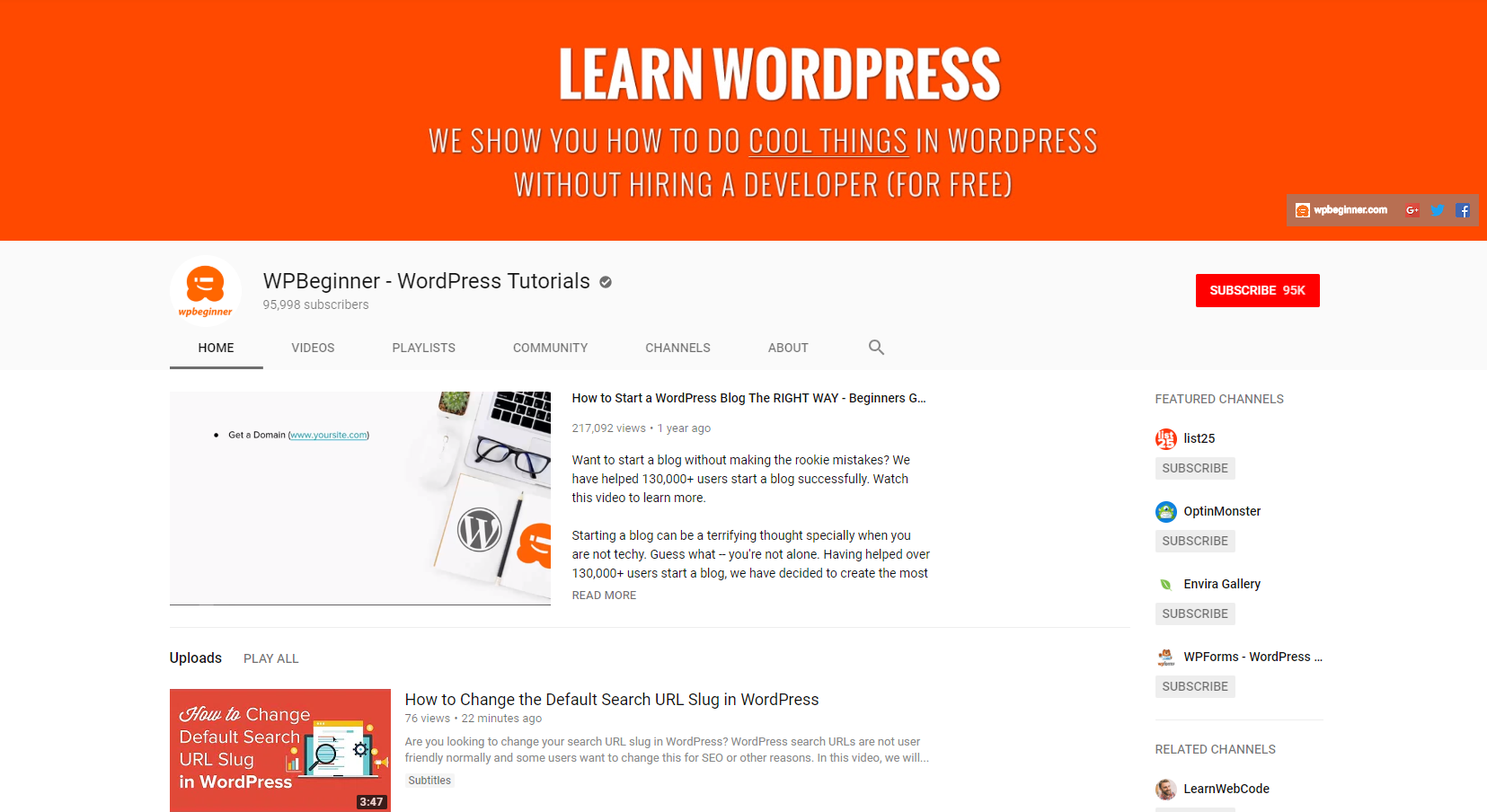(May 14) Security fix for CVE-2018-10380
(May 14) Security fix for CVE-2018-10380
To stay sharp as a developer, or even learn to code from scratch, you need to see examples. Also, explore new ideas and stay current. How do you get that done? Conferences, meetups, and events are one way. However, this can be an expensive approach. Alternatively? Use the best web development YouTube channels to get your info.
It’s full of other developers’ perspectives and tips. The web development Youtube videos in this roundup cover web development specifically. Basically everything you need to keep your products working and your customers happy.
The best Web Development YouTube Channels
1. The New Boston
The New Boston is at the top of the article for a reason. With an archive of more than 4,000 videos and nearly two million subscribers, there’s plenty to explore. Let’s highlight a few of the channel’s main playlists.

Best YouTube programming videos from The New Boston:
At the time of this writing, it has been over a year since The New Boston came out with a new video. In the meantime, their in-depth archive of short training videos – many are 5-15 minutes long – will get your hands dirty when working with new technologies.
2. Adam Khoury (Developer Training & Programming Courses)
With coverage of JavaScript, PHP, SQL, HTML, CSS, ActionScript and other technologies, this channel has been running for nearly ten years. The channel is solid in JavaScript with over 100 videos dedicated to the technology.

Best YouTube videos for developer training and programming courses:
- How to Detect User Browser JavaScript Programming Tutorial
- File Upload Drag and Drop Tutorial HTML5 JavaScript PHP
3. Google Chrome Developers
As one of the most popular browsers today, it makes sense to keep up with the peeps from Chrome. In addition to Chrome-specific news, the channel also covers broader issues relating to web development. A few examples below.

Best YouTube videos from Google Chrome Developers:
4. LevelUpTuts (Become a Better Web Developer)
Open up your notebook when you visit this channel – it is a pure tutorial experience. If you are the kind of the person, who likes to take 15-30 minutes a day for professional development, check this channel out.

This channel stands out for its technical breadth and depth with step by step demonstrations. You’ll even find a few tutorials covering Sketch, a popular design tool.
Best YouTube videos on LevelUp Tuts:
5. WPBeginner – WordPress Tutorials
Many web hosts offer one-click installation for WordPress. That’s just the beginning when it comes to using WordPress effectively. Use this channel’s tutorials to customize your WordPress site and improve performance. You’ll also find helpful tips to fix some of the most common WordPress errors.

Best YouTube videos for WordPress Beginners:
What’s next after watching YouTube?
Let’s face it, watching videos has become a part of all of our days. We get it, it’s a fun way to learn. But you need more after you’ve sat through our pick of the top tutorial-oriented videos from the best web development Youtube channels.
So just schedule 30 minutes on your calendar to tinker with the idea. Let us know in the comments below if you’ve added any of these top web development channels to your YT subscriber list. Or tell us if you agree with our list or not on Facebook and Twitter.
The post The top five best web development YouTube Channels appeared first on Plesk.
(May 13) https://www.libraw.org/news/libraw-0-18-11 —- CVE-2018-10529 fixed: out of bounds read in X3F parser CVE-2018-10528 fixed: possible stack overrun in X3F parser
(May 13) – New upstream version fixing CVE